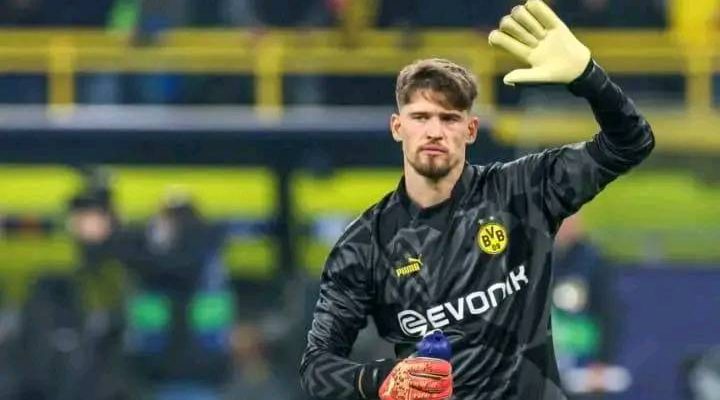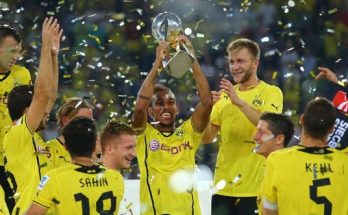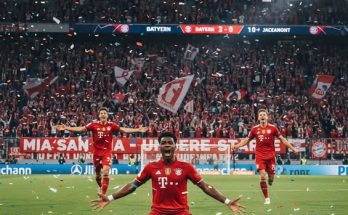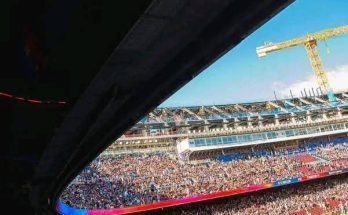The German football world stood still. In a Bundesliga landscape dominated by transfers, agents, astronomical sums, and the ever-churning rumor mill, one act of loyalty has silenced the noise and reignited a feeling long thought forgotten — identity. Gregor Kobel, Borussia Dortmund’s number one, has just turned down an eye-watering multi-million euro offer from title rivals Bayer Leverkusen and has instead put pen to paper on a long-term extension with Dortmund until 2030. In an era where loyalty often feels like a footnote, Kobel’s decision feels nothing short of revolutionary.
The announcement dropped like a lightning bolt, sending shockwaves not just through Germany but through all of Europe. The timing was unexpected. Negotiations had supposedly stalled, and rumors circulated for weeks that Bayer Leverkusen, with their glittering project, recent title success, and Champions League ambitions, had made a concrete bid to lure the Swiss shot-stopper to the BayArena. Reports of a generous salary package, performance bonuses, and an exit clause tailored to his liking painted a picture that seemed too good to refuse. But instead of following the path paved in gold, Kobel made a choice etched in black and yellow.
BVB’s official statement came quietly, but the implications roared. No teasers. No marketing gimmicks. Just a simple announcement: Gregor Kobel has extended his contract until June 30, 2030. What followed was pandemonium. Dortmund fans erupted across social media, their streets, and even in workplaces and schools. In Kobel, they did not just retain a goalkeeper — they held on to a symbol, a guardian, a figure that reminded the world what football can still be about: loyalty, passion, belonging.
Kobel’s rise at Dortmund had been swift but deserved. Since arriving from VfB Stuttgart in 2021, he had cemented himself as one of the finest goalkeepers in Europe. Agile, commanding, calm under pressure — his reflex saves became part of Dortmund’s weekly highlight reels. Whether it was a fingertip save against Bayern Munich in Der Klassiker or a heroic penalty stop in the dying minutes against Leipzig, Kobel consistently delivered. But what truly set him apart wasn’t just his goalkeeping. It was the way he embodied the club’s spirit.
From his first day at Signal Iduna Park, Kobel seemed to understand Dortmund’s identity. He didn’t treat it as a stepping stone. He didn’t speak in vague terms about “next chapters” or “career ambitions.” Instead, he spoke of roots, of home, of fight. In the locker room, he became a leader. On the pitch, he was the last line of defense, often the first to rally the team during adversity. Off the field, his connection with fans deepened. He stayed after games, signed shirts in the rain, and often appeared at youth academies unannounced to inspire the next generation.
It was this bond, this invisible thread that tied him to the club’s heartbeat, that ultimately outweighed any financial offer. Those close to Kobel say the decision was emotional, not calculated. That it wasn’t about what Leverkusen could offer — but what Dortmund meant. “This club believed in me, even before many others did,” he once said in an interview. “Here, I’m not just a player. I’m part of a family.” And now, with this commitment until 2030, Kobel has effectively tied his prime years to that family.
Within the Dortmund boardroom, the extension is being hailed as a triumph. Amid ongoing efforts to retain key players and compete financially with giants like Bayern and RB Leipzig, securing Kobel sends a powerful message. It’s not just about building a team — it’s about building a culture. CEO Hans-Joachim Watzke reportedly described the deal as “the most important piece of business we’ve done all year,” while head coach Edin Terzić called Kobel “the soul of our defense and a leader of men.”
The psychological impact of this deal cannot be overstated. For years, Dortmund has battled the perception of being a ‘selling club.’ Talents like Ousmane Dembélé, Jadon Sancho, Erling Haaland, and Jude Bellingham all used the Westfalenstadion as a launchpad before moving on. Each departure, no matter how lucrative, left fans wondering: who’s next? With Kobel, Dortmund has drawn a line in the sand. He is not for sale. Not now, not next year, not even in four years. He is Borussia Dortmund.
Fans feel this. On the day of the announcement, dozens of supporters gathered at the club’s training ground, holding up banners that read “Kobel ist unser Kapitän” — Kobel is our captain. Even though he doesn’t wear the armband every match, he has already stepped into a symbolic leadership role. Social media exploded with tributes, edits, and emotional videos showcasing his best saves, his passion, his tears, and his roar after every clean sheet. It wasn’t just a contract renewal. It was a pledge. A declaration that in this transient football world, something — someone — can still stay.
For Bayer Leverkusen, the rejection stings. They had approached Kobel with genuine belief that he could be the final piece in their puzzle. With a dominant squad already in place and European ambitions skyrocketing, landing Kobel would have been a statement. But this saga is a reminder that not everything can be bought. Some bonds defy balance sheets.
The ripples of this moment are already being felt in the Bundesliga. Rivals are reportedly reconsidering their approach to long-term planning. Media pundits are debating whether Dortmund, with Kobel secured, can mount a sustained title challenge. Some even argue that his presence alone raises their ceiling in the Champions League. When you have a world-class goalkeeper in his prime — and he’s fully committed — the rest of the squad gains belief.
Behind the scenes, the influence of sporting director Sebastian Kehl cannot be overlooked. His quiet but determined work in recent months included not just negotiating with Kobel’s representatives but painting a vision of what BVB could be — a club that doesn’t just nurture stars, but keeps them. It’s a narrative shift, and Kobel is the face of it.
What comes next for Dortmund? With their last line of defense locked in, focus now turns to building around him. The squad has youth, hunger, and now, the reassurance that the man behind them isn’t going anywhere. That sort of psychological safety is rare. And in big matches, where margins are razor-thin, knowing you have Kobel behind you — a man who chose the club over riches — can be worth more than tactics.
In Switzerland, Kobel’s homeland, the news has been met with pride. Many see him not just as a Swiss international, but as an ambassador of the country’s footballing ideals: humility, work ethic, and team-first mentality. His loyalty to Dortmund has only enhanced his stature back home.
For the next five years, Gregor Kobel will stand tall between the posts of Signal Iduna Park, facing the Yellow Wall and defending the badge with all the ferocity, focus, and fearlessness that has become his trademark. And for the fans who sing his name, wave his jersey, and cheer every save, his choice means more than any trophy.
Because in that choice, they see themselves. In his loyalty, they feel heard. In his commitment, they are reminded that football is not just business. It’s not just numbers and contracts and press releases. At its core, football is about belonging. About fighting not because you have to, but because you want to.
Gregor Kobel has made his choice. Not the easier one. Not the richer one. But the right one. For Dortmund. For legacy. For love.
And in doing so, he hasn’t just extended a contract. He’s reignited belief.



